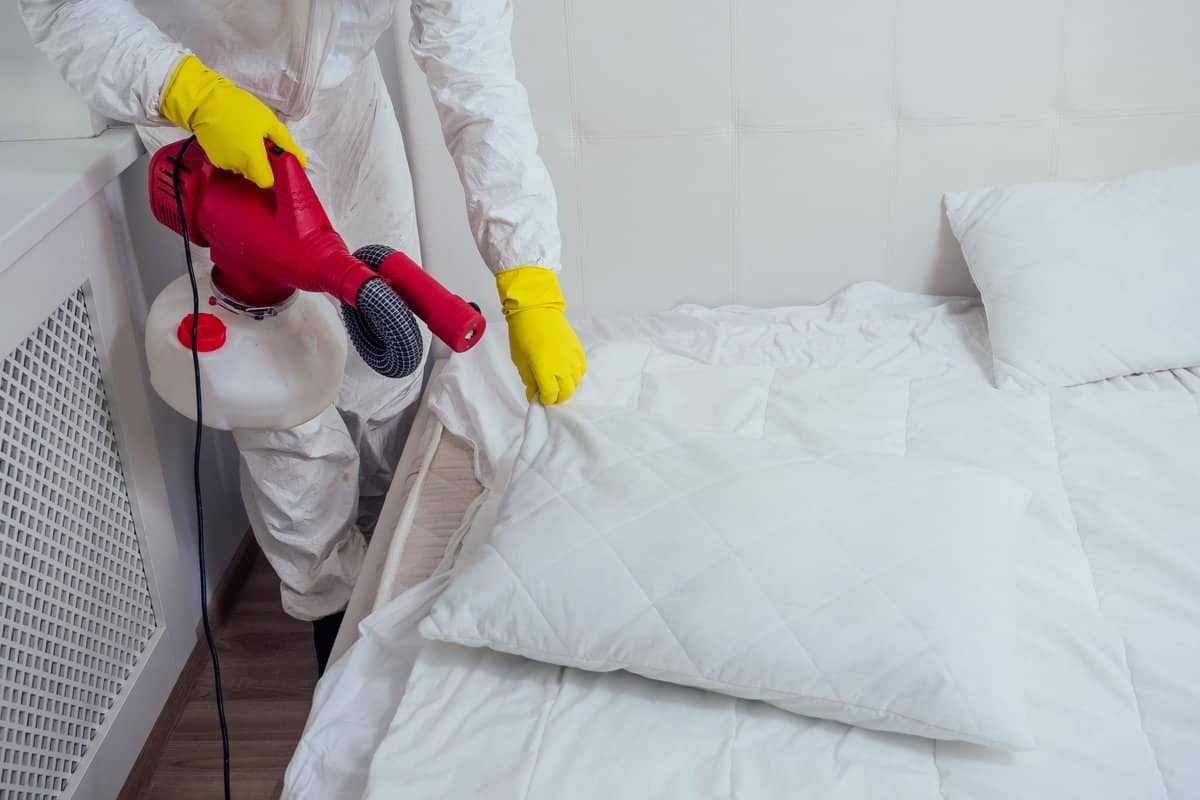Expert Kings Bug Control Cincinnati: Your Trusted Pest control experts
Wiki Article
Kinds Of Parasite Control: Which Technique Is Right for Your Infestation?
When encountered with a bug infestation, the option of an ideal approach for parasite control is critical in properly taking care of the situation. By exploring the different kinds of insect control techniques offered, people can make informed decisions customized to their distinct scenarios, ensuring a much more sustainable and reliable outcome in insect obliteration.Chemical Insect Control
Chemical pest control involves using artificial or naturally obtained chemicals to manage and get rid of pest populations successfully. This approach is commonly used in agriculture, forestry, and residential setups to fight a variety of parasites, including weeds, pests, and rodents. The use of chemical pesticides can offer quick and targeted solutions to pest invasions, making it a preferred selection for many people and services.Among the crucial benefits of chemical parasite control is its capability to swiftly remove parasites, minimizing the threat of damage to plants, home, and human health. By utilizing certain chemicals that target particular bugs, this approach can properly control problems while decreasing damage to beneficial microorganisms and the setting when used appropriately.
Nevertheless, using chemical parasite control likewise elevates worries regarding potential adverse effects on non-target types, water resources, and human health. It is important to comply with safety guidelines, use chemicals sensibly, and consider different insect control methods to lessen these risks and make certain lasting pest monitoring practices.
Biological Parasite Control
Biological bug control, likewise referred to as biocontrol, uses living microorganisms to manage and reduce parasite populations naturally. This approach uses the power of nature to regulate parasites without the demand for synthetic chemicals. Biocontrol can include the introduction of all-natural opponents of the parasite types, such as microorganisms, predators, or bloodsuckers, to reduce insect populations. By utilizing the parasite's natural predators or microorganisms, organic insect control uses a eco-friendly and sustainable remedy to pest administration.
Mechanical Insect Control
Using physical and hand-operated techniques to handle parasite populations, mechanical bug control supplies a different technique that does not rely upon the use of living microorganisms or synthetic chemicals. This approach entails using obstacles, traps, or other devices to literally hinder or get rid of parasites. By blocking bug entrance factors or establishing catches to catch them, mechanical bug control can successfully reduce infestations without presenting chemicals right into the environment.One common example of mechanical insect control is making use of mesh screens on windows and doors to stop pests from going into structures. This simple yet efficient approach serves as a physical obstacle, maintaining parasites out while permitting correct ventilation. Additionally, devices like mousetraps, fly swatters, and ultrasonic repellents fall under the mechanical parasite control group.
While mechanical bug control approaches can be labor-intensive and require regular tracking and upkeep, they supply a eco friendly and sustainable option for handling parasite problems. By incorporating various mechanical techniques, building proprietors can produce a detailed pest control method that minimizes dependence on chemical pesticides.
Physical Bug Control

Some usual physical insect control approaches consist of using obstacles such as screens or webs to stop pest entry, traps to capture and get rid of insects, and hand-picking to physically eliminate pests from plants or frameworks. In addition, techniques like warmth therapies can be utilized to manage insects like bed pests by elevating the temperature level to degrees that are lethal to the insects.
Physical insect control is particularly useful in integrated insect monitoring (IPM) strategies, where numerous pest control approaches are integrated for reliable parasite monitoring while lessening making use of chemicals. By utilizing physical pest control techniques, individuals can properly address parasite infestations with minimal ecological influence.
Integrated Parasite Management
When applying physical insect control techniques as component of pest administration strategies, Integrated Insect Administration (IPM) emerges as a thorough technique that leverages numerous strategies to efficiently regulate pest populations. IPM concentrates on long-term avoidance of bugs with a mix of organic, social, physical, and chemical devices tailored to specific bug issues. By integrating numerous control techniques, IPM intends to decrease the threats connected with insects while additionally decreasing reliance on chemical remedies.One trick facet of IPM is the focus on tracking and assessing pest populations to figure out one of the most ideal control approaches. This proactive method permits very early treatment and targeted techniques, bring about much more reliable parasite monitoring. Furthermore, IPM promotes ecologically friendly techniques by prioritizing non-chemical control techniques and just making use of pesticides as a last option.
Verdict

By using the pest's all-natural killers or pathogens, biological pest control offers a sustainable and environmentally pleasant remedy to pest administration. - Kings exterminator cincinnati
Making use of physical and hands-on techniques to manage bug populaces, mechanical parasite control offers an alternate method that does not count on the use of living organisms or synthetic chemicals.A reliable strategy to taking care of bug populations without depending on chemical or biological techniques involves the usage of physical parasite control techniques.When executing physical pest control techniques as part of insect management methods, Integrated Insect Monitoring (IPM) arises as a thorough technique that leverages numerous techniques to properly control pest populaces. Chemical insect control includes the use of pesticides, biological pest control utilizes all-natural killers, mechanical insect control includes physical obstacles, physical bug control includes trapping or getting rid of pests, and integrated pest monitoring combines multiple approaches for a holistic approach to pest control.
Report this wiki page